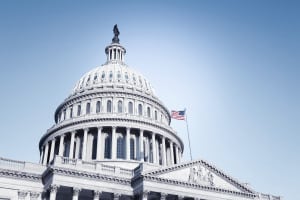Top Senate Republican Mitch McConnell said he’s largely sticking with a partisan, scaled-back COVID-19 relief bill that has already failed twice this fall, even as Democratic leaders and a bipartisan group of moderates offered concessions in hopes of passing pandemic aid before Congress adjourns for the year.
The Kentucky Republican made the announcement Tuesday after President-elect Joe Biden called upon lawmakers to pass an initial relief bill now with more to come next year. House Speaker Nancy Pelosi resumed talks with Treasury Secretary Steven Mnuchin about a year-end spending package that could include COVID-19 relief provisions. Key Senate moderates rallied behind a scaled-back framework.
It’s unclear whether the flurry of activity will lead to progress. Time is running out on Congress’ lame-duck session and Donald Trump’s presidency, many Republicans won’t even acknowledge that Trump has lost the election and good faith between the two parties remains in short supply.
In his regular appearance before the Senate Banking Committee Tuesday, Federal Reserve Chair Jerome Powell asked lawmakers to think of additional relief as a “bridge” to get the economy from the current situation with rising virus cases, to a period when the vaccines will be widely distributed.”
“We can see the end. We just need a way to get there,” Powell said, describing the nation’s economic outlook right now as “extraordinarily uncertain.”
Little Change from Past GOP Bills
McConnell said that his bill, which only modestly tweaks an earlier plan blocked by Democrats, would be signed by Trump and that additional legislation could pass next year. But his initiative fell flat with Democrats and a key GOP moderate.
“If it’s identical to what [McConnell] brought forth this summer then it’s going to be a partisan bill that is not going to become law,” said Sen. Susan Collins, R-Maine, who joined moderates in unveiling a $908 billion bipartisan package only hours earlier. “And I want a bill that will become law.”
Democrats declined to release details of their concessions to McConnell.
“Speaker Pelosi and I sent him the proposal in a good faith effort to start, to get him to negotiate in a bipartisan way,” Schumer said.
McConnell’s response was to convene conversations with the Trump team and House GOP Leader Kevin McCarthy of California. During the campaign, Trump appeared eager to sign a relief bill and urged lawmakers to “go big” but McConnell said Tuesday’s modest measure is all he’ll go for now.
“We don’t have time for messaging games. We don’t have time for lengthy negotiations,” McConnell said. “I would hope that this is something that could be signed into law by the president, be done quickly, deal with the things we can agree on now.” He added that there would still be talks about “some additional package of some size.”
McConnell’s reworked plan swiftly leaked. A summary ignores key demands of Democrats and moderates such as aid to states and local governments and additional unemployment benefits.
$908B Bipartisan Proposal
In Wilmington, Delaware, Biden called on lawmakers to approve a down payment on COVID-19 relief, though he cautioned that “any package passed in lame-duck session is – at best – just a start.”
And a bipartisan group of lawmakers proposed a split-the-difference solution to the protracted impasse over COVID-19 relief in a last-gasp effort to ship overdue help to a hurting nation before Congress adjourns for the holidays. It was a sign that some lawmakers across the spectrum are reluctant to adjourn for the year without approving some COVID-19 aid.
The group includes Senate centrists such as Joe Manchin, D-West Virginia, and Collins, who hope to exert greater influence in a closely divided Congress during the incoming Biden administration.
The proposal by the bipartisan group hit the scales at $908 billion, including $228 billion to extend and upgrade “paycheck protection” subsidies for businesses for a second round of relief to hard-hit businesses like restaurants. It would revive a special jobless benefit, but at a reduced level of $300 per week rather than the $600 benefit enacted in March. State and local governments would receive $160 billion, transit agencies and airlines would receive $45 billion to stave off cuts advocates say would devastate many cities. Money would also be provided for vaccines.
The bipartisan compromise proposal is virtually free of detail, but includes a temporary shield against COVID-19-related lawsuits against businesses and other organizations that have reopened despite the pandemic.
That’s a priority for McConnell. But his warnings of a wave of destructive lawsuits haven’t been borne out, and it is sure to incite opposition from the trial lawyers’ lobby, which retains considerable influence with top Democratic leaders.
Previous, larger versions of the proposal – a framework with only limited detail – were rejected by top leaders such as Pelosi, D-California, and McConnell. But pressure is building as lawmakers face the prospect of heading home for Christmas and New Year’s without delivering aid to people in need.







